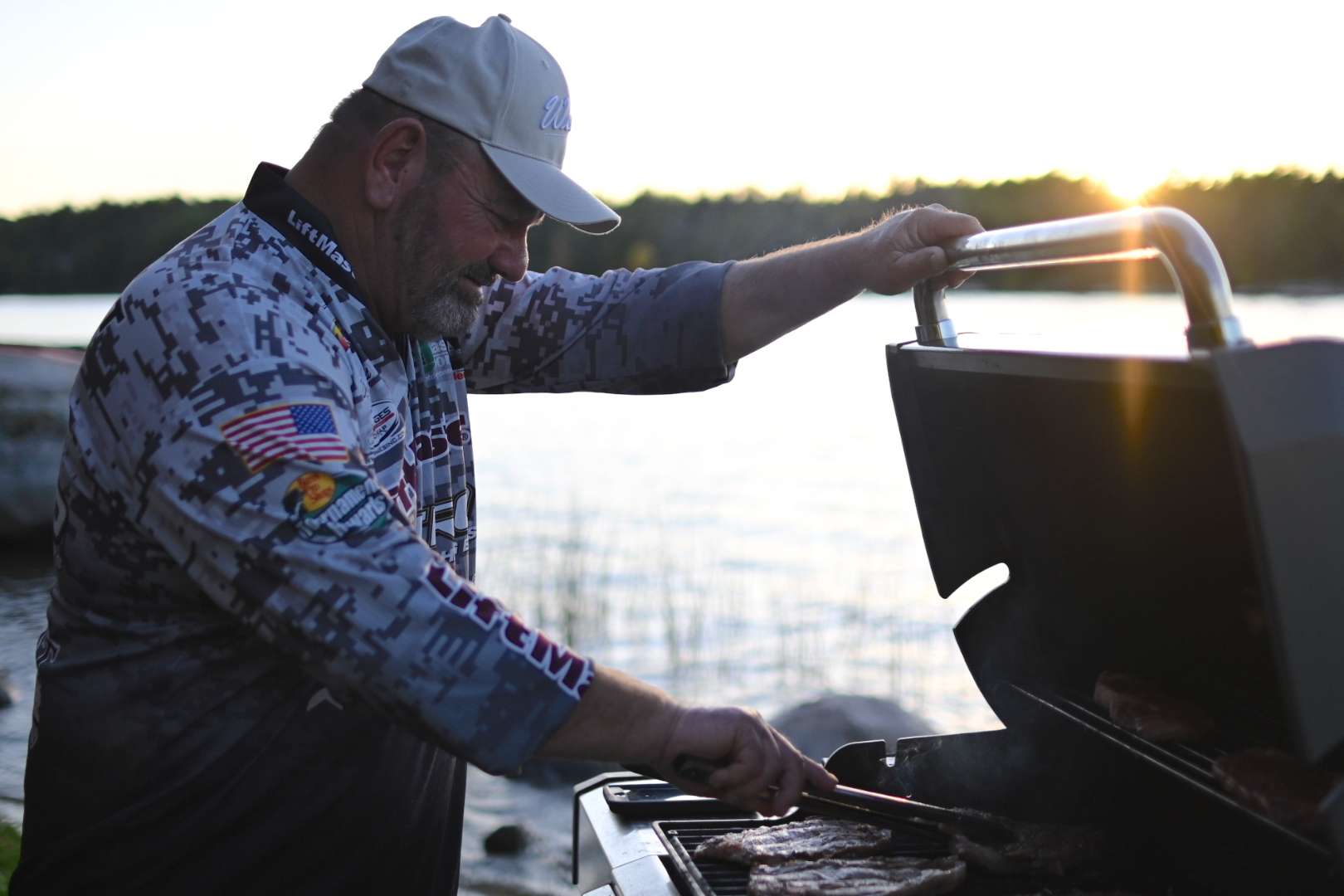
Thirty thousand miles. That’s the average distance a Bassmaster Elite Series pro will drive during a given tournament year. Most of those miles will be logged behind the wheel of a full-size pickup truck, like a Toyota Tundra, with hundreds of pounds of gear in the back, a few thousand pounds of boat and trailer in tow and a camper top over the bed.
There’s a reason many Elite Series anglers have dubbed the tournament sponsor truck the Tundra Hotel. More than a handful have spent the night in the back of their road ride. But if you’re a regular weekend angler looking for adventure, is a night spent in the backseat of a truck really the best you can get?
You don’t have to splurge on a five-star resort to get a good night’s rest on the road. Let’s take a look at some of the option Elite Series pros use for housing and a glance at which ones might work for you.

Are you a kayak angler on a budget?
Sleep under the stars for free, courtesy of Uncle Sam.
The National Park Service, U.S. Department of Agriculture, U.S. Forest Service and Army Corps of Engineers oversee millions of acres of federal land within the United States. And while the highlights — Yellowstone, The Great Smoky Mountains, etc. — are known by many, lesser-known lands often hold free campsites. To find them, you’ll need to do a little legwork. Try calling a park office or downloading an app like The Outbound or AllTrails, where free campsites are often listed.
What can you expect to find at these campsites? If you’re lucky, a fire ring. But you’ll also have free reign of your own slice of places like California’s Trinity-Shasta National Forest, Wisconsin’s Chequamegon-Nicolet National Forest or the Ozark National Forest in Arkansas.
Quality, three-season tents can be found for less than $200, and for about the same price you can grab a goose down sleeping bag that will keep you warm in any condition you’ll be fishing in unless you’re in an ice hut in Minnesota.
Admittedly, these free campsites are not ideal for anglers towing 21-foot bass boats loaded with sophisticated equipment. This is a cost effective option likely best suited for kayak anglers that won’t be deterred by rugged access roads and confined parking.

Are you bringing the whole family?
More people means more room and more amenities.
If you’ve ever seen the face of a teenager deprived of their smartphone, you know the peril of placing one in a secluded wilderness campground without WiFi. Thankfully, there are ways around that.
Many modern campgrounds now offer WiFi, along with restaurants, bathhouses, swimming beaches and a variety of amenities to help you stay civilized while spending the night outdoors. Some of the best campgrounds in America are located right on legendary waterways like Lake Guntersville, Toledo Bend and Lake Chickamauga — and they even include their own boat ramps.
Of course, you’ll need to pay up for access to these campgrounds. Average rates are around $35 per night, but they usually include utility connections for an RV. Don’t have an RV or a second vehicle to tow a boat? Almost all of them offer tent sites for a few dollars less per night.

Are you dedicated to the road life?
Casual anglers may be better off elsewhere.
Though fishermen often camp, they do so for very different reasons than most campers. There’s a reason you won’t find any fishing equipment at REI, for instance. As anglers, our priority is to get on the water. Everything else — hiking, biking, wildlife photography — is secondary.
Do you need to sleep in a tent to go fishing? Do you need a RV to be closer to the water every morning? Absolutely not. But, if you’re an aspiring tournament angler looking to save some coin and explore the country, campgrounds offer an excellent way to do so.
Of the Elite Series pros we surveyed for this story, a good many opted for a Holiday Inn Express. However, those same pros all had stories of starting out by sleeping in the back of their pickup trucks under the wavering pines of a forgotten campground. In our view, there may be no better way to begin.
Decided on the tent? On Go-Outside.com you can find expert advice on how to choose the right tent for your family.





